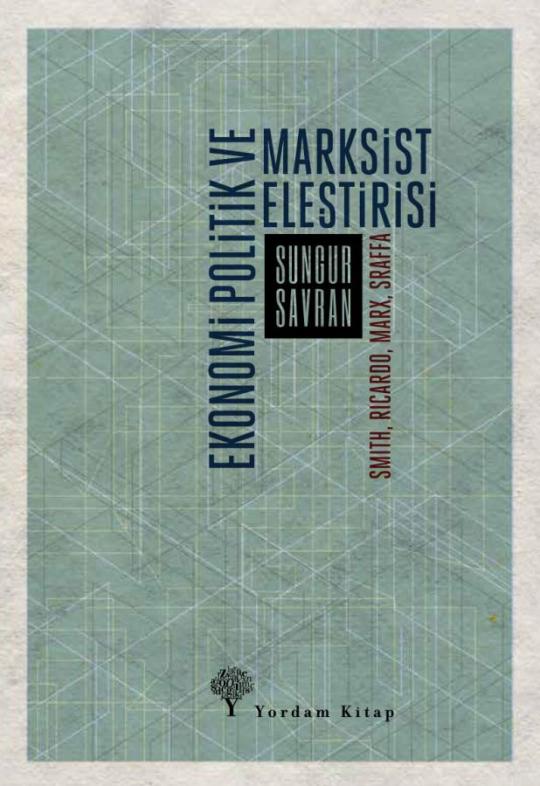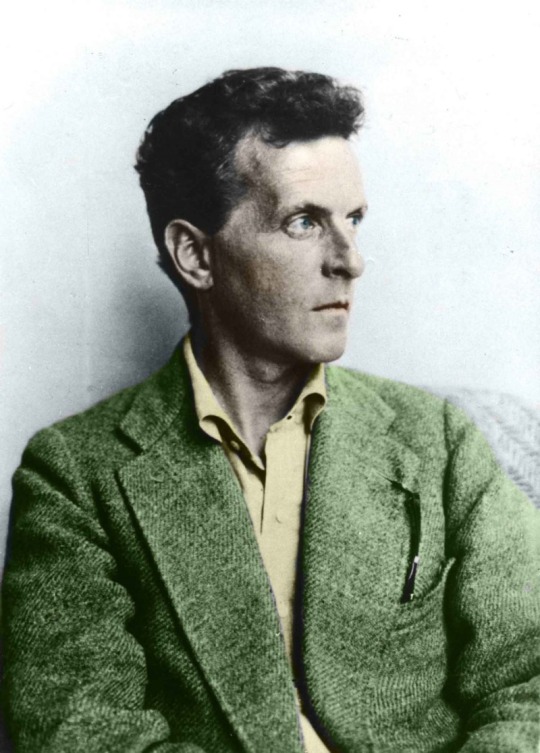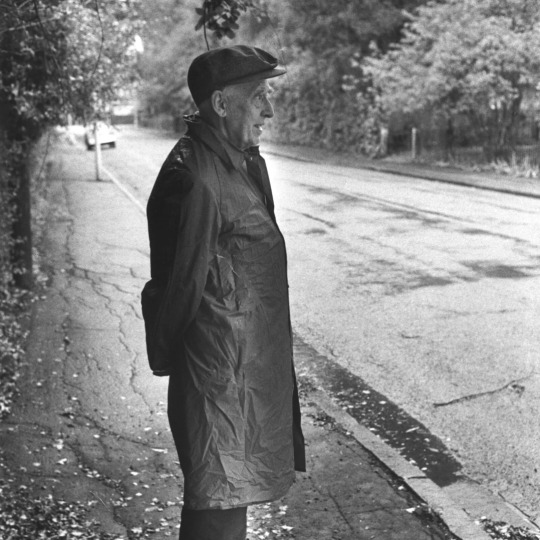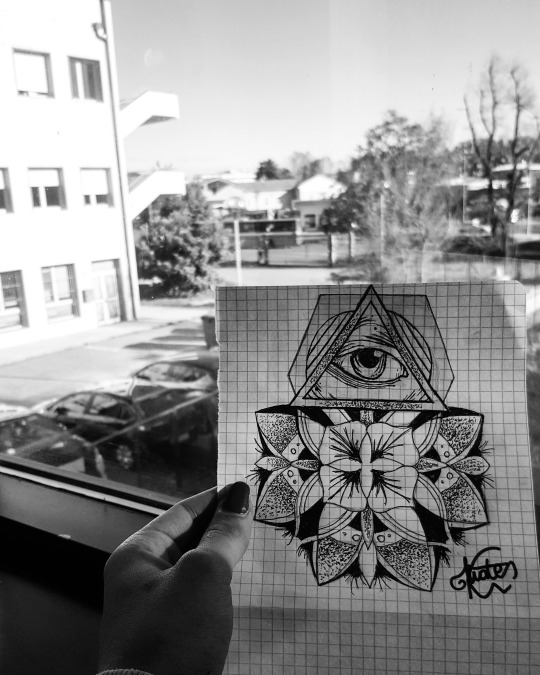#Sraffa
Explore tagged Tumblr posts
Text
" Il bonzo vietnamita che si cosparge di benzina, il giovane americano che brucia pubblicamente la cartolina precetto, il radicale che digiuna - tutti eredi spirituali del primo genio che intuì le possibilità date da una società delle comunicazioni, e cioè il Mahatma Gandhi - sono stati tra i primi a praticare una attività che, parafrasando Sraffa, possiamo chiamare "produzione di messaggi per mezzo di messaggi". Uccidersi, digiunare, esporsi alla condanna per rifiuto della leva senza che nessuno lo venga a sapere, è un gesto inutile. Il gesto diventa utile proprio perché se ne parla, e diventa non un gesto materiale (la mia morte, il mio digiuno) ma un gesto simbolico che parla d'altro (le ragioni per cui muoio, digiuno, brucio la cartolina). Sino dalla nascita dei grandi circuiti di informazione, gesto simbolico e trasmissione della notizia sono diventati fratelli gemelli: l'industria della notizia ha bisogno di gesti eccezionali e li pubblicizza, e i produttori di gesti eccezionali hanno bisogno dell'industria della notizia che dia senso alla loro azione. Ho fatto l'esempio di gesti violenti e di gesti non violenti, proprio per dire che il fenomeno è più diffuso di quanto non si pensi. Basti considerare cosa fa un uomo politico quando dà clamorosamente le dimissioni. Non dà le dimissioni perché vuole smettere di lavorare (magari vuole ricominciare subito dopo e a condizioni migliori), ma le dà affinché il suo gesto diventi notizia. Appartengono a questa categoria di gesti-messaggio quello della divetta che si spoglia a Cannes, del divo che schiaffeggia il fotografo e persino (in una società primitiva dai circuiti comunicativi ridotti) il gesto del fidanzato respinto dai genitori che rapisce la ragazza, in modo che, dopo che tutti hanno saputo che essa non è più illibata, il matrimonio diventi indispensabile. La tecnica di produzione di notizie per mezzo di fatti-messaggio è molto antica: solo che negli ultimi tempi essa è cresciuta di pari passo con la crescita delle tecniche di informazione. "
---------
Brano tratto da C'è un'informazione oggettiva?, relazione tenuta il 15 aprile 1978 ad un convegno milanese organizzato dalla Casa della Cultura e dall'Istituto Gramsci su "Realtà e ideologie dell'informazione", testo quindi raccolto in:
Umberto Eco, Sette anni di desiderio. Cronache 1977-1983, Bompiani, 1983. [Libro elettronico]
#Umberto Eco#semiologia#leggere#letture#citazioni#libri#Sette anni di desiderio#anni '70#anni di piombo#terrorismo#intellettuali italiani del XX secolo#saggi#contestazione#media#società delle comunicazioni#Mahatma Gandhi#non-violenza#giovani#nonviolenza#Piero Sraffa#manifestazioni#notizie#obiezione di coscienza#gesti simbolici#informazione#pace#obiettori di coscienza#politica#gesti-messaggio#oggettività
7 notes
·
View notes
Text
Piero Sraffa: El Economista que Desafió el Status Quo
Hoy nos adentramos en la vida y obra de Piero Sraffa, un economista italiano cuya genialidad remeció los pilares de la economía neoclásica y revitalizó las ideas de los clásicos como Ricardo y Marx. Si quieres entender cómo se producen y distribuyen los recursos en una economía, y por qué las cosas no son tan simples como las pintan los modelos tradicionales, Sraffa es tu guía. Acompáñanos en…
#bien compuesto#bienes básicos#Cambridge debates#controversia del capital#David Ricardo#desigualdad económica#distribución del excedente#economía clásica#economía crítica#escuela neo-ricardiana#Heinz Kurz#Krishna Bharadwaj#Luigi Pasinetti#Pierangelo Garegnani#Piero Sraffa#postkeynesianismo#Producción de mercancías por medio de mercancías#teoría de la producción#teoría neoclásica
0 notes
Text
Sungur Savran – Ekonomi Politik ve Marksist Eleştirisi (2025)
Sungur Savran’ın ‘Ekonomi Politik ve Marksist Eleştirisi’ adlı eseri, yalnızca akademik bir doktora tezi değil; Marksist iktisadın temel kavramlarını, klasik ekonomi politikle olan hesaplaşmasını ve 20. yüzyılda yaşanan büyük teorik tartışmaları bütünlüklü bir şekilde sunan kapsamlı bir inceleme. Kitap, üç temel eksen etrafında yapılandırılmıştır ve her bir eksen, farklı okuma yolları…

View On WordPress
#2025#Adam Smith#David Ricardo#Ekonomi Politik ve Marksist Eleştirisi#Karl Marx#Piero Sraffa#Sungur Savran#Yordam Kitap
0 notes
Note
actually you just need to get into alfredo marxism and eat profuse amounts of pasta and read marxist tomes in an italian restaurant until you get big and wide. also change your name to something italian sounding like eduardo tortellini
trying to think whether or not italy ever produced a single marxist worth caring about. i feel like sraffa doesn't count because he was just a cambridge don with a funny accent. there's literally no one else.
19 notes
·
View notes
Text
I guess I'm going to passively @edwad on this because it was originally sort of supposed to be an ask for him only because. idk. as a tumblr commie he's our collective econ-theory advice columnist i guess. but i couldn't keep it short enough and it's more about me just talking to myself anyway. but I'm sitting here reading Skidelsky's edited Essential Keynes volume and it gets to the selections from the Tract on Monetary Reform. and Keynes says something about the natural interest rate and I'm trying to dredge something up from my brain about Sraffa's argument against a natural interest rate and end up falling down the rabbit hole on that a little bit and Wicksell's idea vs Hayek's idea of said concept. and I'm thinking about how every time I try to handle these ideas their concepts of things like "rent" and "interest" seems very slippery over time. and maybe I'm just broadly not well read enough. and how long it took me in high school even just to understand a substantialist value-concept from reading the opening chapters of capital.
but like what I really don't understand is the relationship of Marx's Critique taken more in its status as Critique to the conceptually related but still heterogeneous traditions of economics that come after him, in a way that isn't just attempting to rehabilitate the classical approach, or something like Ben Fine's critique of the explosion-implosion of the assumptions of marginalist theory, or like. idk Eatwell's constant insistence that modern macro is built on sand because of the Cambridge Capital controversy or whatever. those feel like attempts to say "the way we're doing economics is wrong" but is that warranted or useful if we're trying to say that the real insights of Marx are the places where he's doing something beyond just "these guys are doing economics wrong." Given the whole thing about the "categories of bourgeois economics" in the section on commodity fetishism, do we not have to follow the shifts in those categories, rather than say "well only the earlier categories were actually right."
in any case. re: the glorious-revolution posting from User @'ed Above I think it's interesting to look at this pivot to examining maybe something like more concrete a) financial technologies and b) policy as something important and like. idk I guess i've been personally meaning to tackle something like broader longue durée history. and I would really hope to end up with something like world-systems theory but more informed by a more critical approach to the economic concepts involved.
#i think i actually gave myself a migraine thinking about this#I wish I had had the energy to stick with Crane's crit theory reading group because like#idk the whole notion of what our research project is is so part of that conversation that we were unpicking#but I just couldn't hack it at the time
25 notes
·
View notes
Text

«En Cambridge residía un economista italiano, Piero Sraffa, con el que Wittgenstein tenía costumbre de intercambiar ideas. Habiendo comenzado un día a glosar Wittgenstein la tesis del Tractatus (donde se expone la teoría del reflejo), acerca de la identidad entre los hechos y las proposiciones figurativas de los mismos, Sraffa hizo un gesto con la mano, usual entre los napolitanos para expresar el desprecio, preguntándole acto seguido a Wittgenstein por la forma de este gesto. De acuerdo con un testimonio del propio Wittgenstein, fue esta petición de Sraffa lo que incitó a poner en duda su tesis acerca de la forma lógica de los hechos, tesis de la que -como es sabido- terminó por distanciarse.»
Justus Hartnack: Wittgenstein y la filosofía contemporánea. Ediciones Ariel, págs. 97-98. Barcelona, 1972
TGO
@bocadosdefilosofia
@dias-de-la-ira-1
#justus hartnack#wittgenstein y la filosofía contemporánea#wittenstein#ludwig wittgenstein#atomismo lógico#lenguaje#filosofía del lenguaje#lógica#figuracionismo#sentido#teoría isomórfica del sentido#teoría referencialista#significado#teoría de juegos#piero straffa#proposición#proposiciones#hecho#hechos#tractatus logico-philosophicus#filosofía contemporánea#teo gómez otero
2 notes
·
View notes
Text
Pesquisador David Harvey analisa o legado de Piero Sraffa e sua crítica à economia neoclássica
Londres (Reino Unido) – Quarta-feira, 23/04/2025 – No artigo “On Sraffa’s Trail” (Na trilha de Sraffa), publicado na edição 152 da New Left Review, o geógrafo e teórico marxista David Harvey revisita a trajetória intelectual de Piero Sraffa, destacando sua crítica à economia neoclássica e sua influência sobre o pensamento econômico contemporâneo. Sraffa e a crítica à economia neoclássica Harvey…
#Ciências Sociais#David Harvey#Economica Clássica#Gramsci#John Maynard Keynes#nova ord#Teoria Política: Keynesianismo
0 notes
Text
Andy Merrifield, "Gramsci and his friend 'S'"
Andy Merrifield, “Gramsci and his friend ‘S’“ A post exploring the generational links between Merrifield, David Harvey, Piero Sraffa and Antonio Gramsci. I was in New York recently, where I once lived, some twenty-years back, there to visit my old friend and mentor, my old university teacher—and now he is old—an 88-year-old David Harvey, the world-renowned Marx scholar. I hadn’t seen him for a…

View On WordPress
0 notes
Note
what's your recommended reading list for communist theory
Actually I always tell people to start with capital, since Marx makes it be a very fun read as he always inserts jokes and explains things slowly, going from a small unit to another one. and yeah it's a long read but with vol 1 you're pretty much done unless you're an economics nerd like me. Reform or Revolution by Rosa Luxemburg. Bordiga in conversations with Stalin State and revolution by Lenin is good. Do not read Mao nor Stalin writings since they're mostly trash. and uhhh Imperialism by Lenin is good AS a way to actually see what fits in his theory within marx and what in himself is him going away from the framework of marx. You could also read about the transformation problem for funsies reading Sraffa or other neo ricardians lol
1 note
·
View note
Text
November 1927, D3/12/11: 50; E2.44
28.XI.29
Phases of capitalism
Age of increase of population:
up to Industrial Revolution + French Revolution.
Mercantilism (practice or theory?) absolute monarchy
ends in Malthus, Wallace (Lloyd: power = population × circulation)
Age of increase of circulating capital:
up to 1820–1830 (railways, chartism) Classical P. E.
Physiocrats
beginnings of democracy
The series of the forms of capital must be made continuous
Age of increase of intermediate capital
up to 1870. Free trade, democracy
Risorgimento
Age of increase of fixed capital
up to 1914 Protection “to infant industries”.
Age of...
Imperialism, ultima tappa. {final stage} Capitalism has lost all his reasons of life, having exhausted his tasks. It simply defends itself.
Age of increase of land
inventions (Ricardian improvements)
#Sraffa#November#1927#D3/12/11#phase#capitalism#population#revolution#mercantilism#monarchy#Malthus#Wallace#Lloyd#power#circulation#capital#railways#chartism#physiocrats#democracy#trade#industry#imperialism#land#age#invention#Ricardo#improvement#risorgimento#theory
1 note
·
View note
Text
The Sraffian Methodenstreit and the revolution - Nuno Martins
A geometrical theory refers to an instant in time, and refers to a logical problem that must be solved by the theory of value. A mechanical theory, in contrast, refers to processes that happen in real time, in which causation is involved, and must be addressed through a theory of industrial fluctuations. This is also connected to the distinction between a difference between two instants (in which time is absent in each instant), and a change that takes place through time, which is also expressed in Joan Robinson’s distinction between logical time and historical time. (S. 5)
Sraffa thought that in order to understand human behaviour, one would have to be in close contact with the specific situation a given human being is facing. Sraffa points out that he cannot conceive of the idea of being a king, for he has no idea of what it means to be involved in such a social position. On the contrary, Sraffa writes that he certainly can say something about being a lecturer, since he is familiar with such a situation. To better understand a social position, and the associated language game, to use Wittgenstein’s (1963) term, it is important to be a part of it, as in ethnographical research often undertaken within social or cultural anthropology, where the subject is involved with the community being studied. The emphasis is on historical context as opposed to universal economic theory deduced from universal psychological laws. (S. 7)
Sraffa told Wittgenstein that intuition, or subjective elements in general, are connected to a way of acting, and science is instead a way of knowing. For Sraffa, actions are an object of explanation, rather than something that requires a rational justification, as presupposed when explaining human behaviour in terms of whatever is regarded as rational behaviour. But this does not mean that one cannot draw upon Keynes’s contribution when addressing the human agent in connection to Sraffa’s objective and geometrical theory. While Keynes (1936) presents his theory in terms of psychological laws, I would argue that Keynes’ approach is ultimately underpinned by his view of human conventions, a view that is very different from the view that underpins the notion of rationality presupposed in the homo economicus. And human conventions refer to the more stable and persistent aspects of human behaviour, shaped by a given social and cultural context, as emphasised by ethnographers when studying a given community. So the ethnographical or anthropological mode of reasoning is not entirely disconnected from Keynes’s own approach. (S. 8)
The ethnographical or anthropological approach can also provide some guidance for finding out how to apply Sraffa’s geometrical method in the real world. If we want to apply the geometrical method to empirical reality, a possibility consists in finding an analogue of an instantaneous photograph that persists through time. A possibility in this regard is to look at a normal position, which depends upon human conventions that persist. However, the word ‘normal,’ in this context, can only mean ‘conventional,’ that is, the outcome of conventional human activity, rather than an equilibrium which would be itself explained through mathematical analysis. ... Gravitation does not take place in the logical time of mathematical models, which the classical authors did not even use, but rather in historical time in which multiple factors often preclude any possibility of exact measurement. (S. 9)
But in order to avoid confusing Sraffa’s geometrical theory with its possible application in historical time, we must distinguish two meanings for the term ‘average,’: (i) a ‘geometrical’ average pertaining to the properties of the (geometrical) Standard system; and (ii) an historical average which is an average through historical time, which is the sense in which ‘average’ is relevant for the classical authors from Smith to Ricardo. (S.11-12)
In fact, Sraffa goes as far as arguing that the average is a real entity, with an impact on human agents. This impact is felt on human conventions, which can be best understood through an ethnographical, or anthropological, approach, as noted above. The average is felt by human agents drawing on existing conventions, as the conventional, normal, or natural, situation. In some of his unpublished notes, Sraffa interprets Smith’s reference to natural prices as a reference to a purely physical relation, in the sense of a geometrical proportion. But there is no reason to believe that such a geometrical proportion cannot be found in historical time. Indeed, it is very clear that when Smith refers to ordinary or natural prices, for example, he refers to whatever is dictated by habit and custom. So only by allowing for the possibility of applying a geometrical theory to historical processes in the long-period would we be able to reconcile Sraffa’s interpretation of Smith with what Smith actually wrote. This interpretation of ‘natural’ in terms of ‘conventional’ is also shared by Antonio Gramsci: Human nature is the ensemble of social relations that determines a historically defined consciousness, and this consciousness indicates what is ‘natural’ and what is not [and human nature is contradictory because it is the ensemble of social relations]. People also speak of “second nature”; a certain habit becomes second nature, but was the “first nature” really “first”? Is there not in this commonsense mode of expression some indication of the historicity of human nature? (Gramsci, 2007, p. 321) This approach to what is ‘natural’ or ‘human nature’ is certainly in line with the ethnological or anthropological approach, in which human agency is understood in terms of specific historical context, which constitutes a real entity out of which averages are constructed. (S.13)
But once we see distribution as an exogenous aspect from the point of view of economic theory, to be determined by institutions, we can then study those institutions, and human conventions in general, from an historical, ethnographical and anthropological approach. (S.15)
1 note
·
View note
Quote
[Classical political economy] was a burning house which threatened to set to fire the whole structure and foundations of capitalist society ‒ it was forthwith removed.
Piero Sraffa (1927)
22 notes
·
View notes
Text

⚡
⚡
⚡
#tattoos#inkdrawing#oldschool#illumination#artists on tumblr#art#black#black and white#school#kate#katherine#sraffa#sunrise#money#tnks#photography#tumblrart#tatuaggio#drawing#draw me#drama#artofkhate#squad#goals#window
0 notes
Text
Kuhn in Logic of Discovery or Psychology of Research refers to Popper as "Sir Karl" which when he's opening the paper with effusive expressions of how much he and Popper agree is cute but by the time he's saying "Sir Karl's concept of science obscures even the existence of normal research!" it starts to feel a little bit like Keynes/Sraffa's "Dr. Hayek"
1 note
·
View note